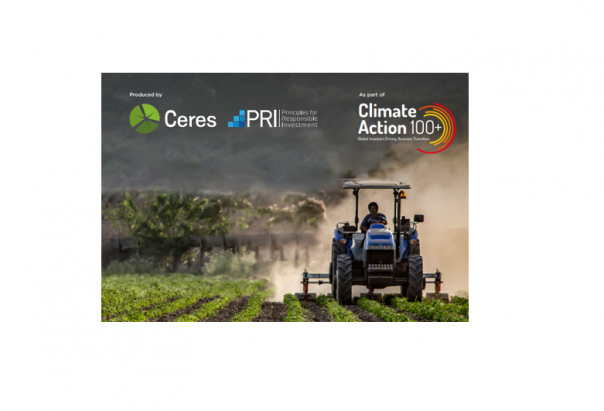
Outlined in Global Sector Strategies: Recommended Investor Expectations for Food and Beverage, the investor expectations aim to inform and improve constructive engagements between investors and food & beverage companies, which are responsible for some of the highest levels of greenhouse gas emissions in the world.
The sector strategy report was developed by Ceres and PRI, two of the founding investor networks of the Climate Action 100+ initiative. Food and beverage sector emissions account for about a third of global greenhouse gas emissions, with most of the emissions coming from the supply chains.
Ceres president and chief executive Mindy Lubber, said: “As the IPCC makes clear, urgent action is needed now from food and beverage companies, both individually and across their supply chains, to make a net zero future possible.
“By focusing on supply chains, these companies have a unique opportunity to collaborate on changing producing and sourcing practices to increase the ambition of emissions reduction for the whole sector.
“Investors will need to see interim targets from companies and then details on how they will deliver these in the short and mid-term, so they can accurately assess how prepared they are for the net zero transition.”
Key expectations of companies include:
- Integrating supply chain climate action into corporate decision-making processes and procurement policies.
- Incentivising and supporting agricultural producers to reduce the climate impact of crop and livestock production and enhance agricultural carbon sequestration.
- Aligning capital expenditures, product development, and R&D with a 1.5-degree scenario.
- Transitioning to more efficient and renewable energy use and transportation across operations, distribution, and supply chains.
- Improving processing, manufacturing, and packaging practices to reduce emissions and food loss.
- Partnering with peers, suppliers, and policymakers to drive transformations across the sector.
Fiona Reynolds, PRI chief executive, added: “We’re encouraging companies in the sector, and investors working with those companies, to be aware of and take action on addressing emissions throughout these supply chains.
“This includes committing to targets around reducing the impact of emissions related to agriculture and livestock, securing green transportation and distribution of products and sourcing sustainable packaging solutions, among others
“We’re urging the sector to take note of the report released today and to work collaboratively to embed climate considerations into their operations.”